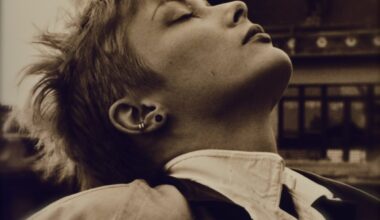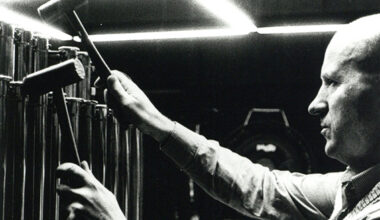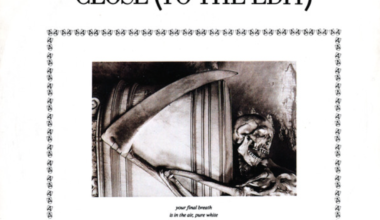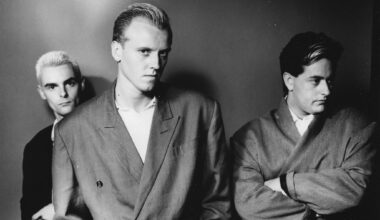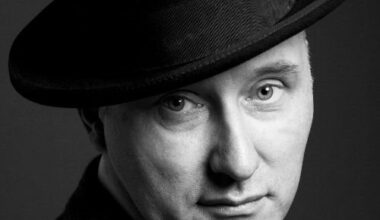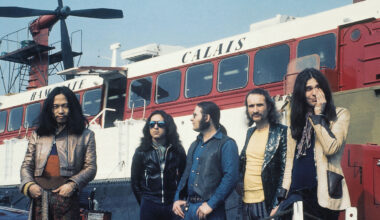James Holden, DJ, producer and Border Community boss, describes the making of ‘Bania’, a modular synth mashup with traditional Moroccan singers that changed the course of his life
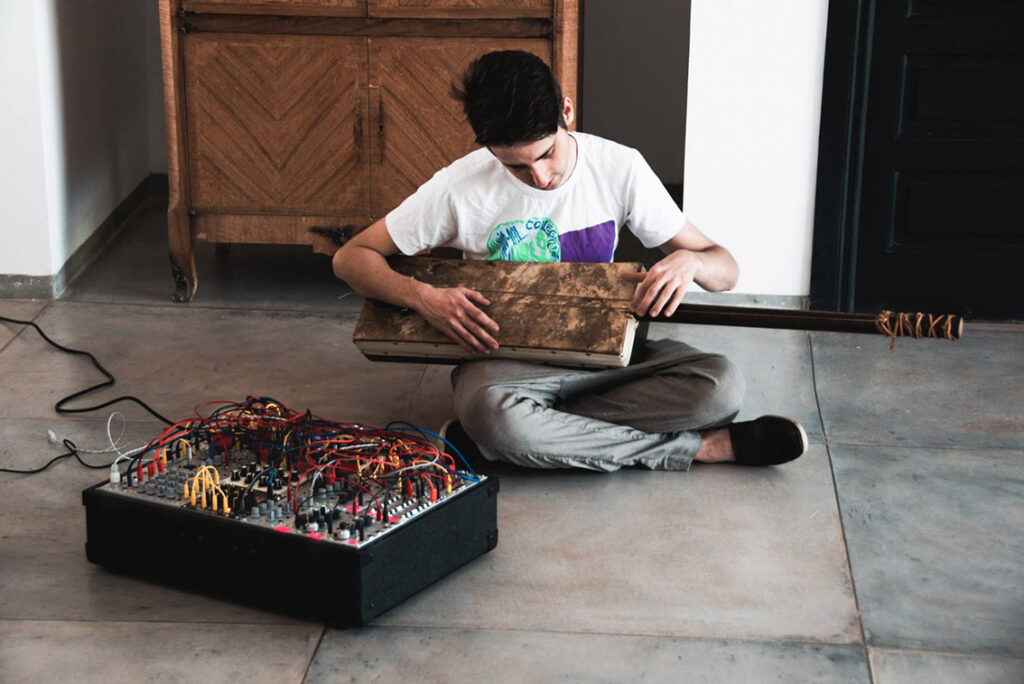
“The email said, ‘Do you want to do a residency in Marrakesh with some Gnawa musicians?’. It was the worst possible time because I had just finished ‘The Inheritors’ album. I was already replying with a polite ‘no’ when my partner Gemma told me to think about it.
“At the time, I was a compulsive music downloader and had tons of tapes from Morocco. It hadn’t really clicked when I first read the email, but they’d mentioned Maalem Mahmoud Guinia, and I realised I actually had some of his music. I was also starting to see ‘The Inheritors’ more and more as a kind of folk-electronic crossover, and was thinking of dance music as folk music. In the end I said, ‘Fuck it!’, and turned my schedule upside down.
“I began looking at Gnawa rhythms to try to work them out. I made a Max MSP patch that was like a drum machine that did the krakeb – that really distinctive rhythm. I was very pleased with this patch and felt it had real Gnawa energy to it. So I thought I’d see what happened when I got there.
“On the first day, after all the formal hellos with no one speaking the same language, the people organising the residency trying to smooth things over, and the Boiler Room guys trying to film everything – we finally sat down and started playing. There was this feeling of expectation in the room, and I was captivated when Maalem Mahmoud Guinia and his band started playing. Everyone in the band – half of them were his sons – was a real musician and they sang from their hearts.
“My drum machine was in time for about one bar. Gnawa music is actually supposed to change tempo – that’s what sucks you into the hypnotic state and is part of what makes it so powerful – but I hadn’t realised it until then. I was not coping. I tried switching to manual triggers and had one of the band members doing the triggers for me on a kind of drum pad. Mahmoud was encouraging me, like an old man saying, ‘Come on son, you can do it!’, though without even speaking the same language. I felt so ashamed.
“That night I stayed up until 6am. I had my modular case in bed with me and I sat there with some hash and tea and completely repatched it. I said to myself, ‘None of that is going to work. I have to play melodies, and I have to find a way to play melodies that aren’t plain, that fit and feel worthwhile’.
“I came up with a patch that used three quantizers and a Make Noise Pressure Points module – a voltage memory thing. I had a ribbon controller as well, and with those I could switch between different chords or inversions of chords… move it around. The pressure was on a filter, and it was like three oscillators. It felt like a genuine instrument.
“The next day I was determined to be less separated by language, and so I tried speaking French and Mahmoud spoke a bit of English. I asked if they wanted to go for a spliff before we started, and they were like, ‘Thank God!’. They’d all been hired to do this residency and they had to be on their best behaviour, but suddenly everybody gets their pouches out and we go outside to set up. The hotel was a nice villa with a pool and I remember birds were singing in the distance.
“We couldn’t agree on which song to play. Then Mahmoud was like, ‘Try this one’, and riffed it out. I found the notes – I had a Casio keyboard there to work out the notes he was playing, and I put them into my quantizers. I don’t even know what they were – I’ve tried to recreate it so many times. In the end, I crossed my fingers and we started recording.
“It felt good, and I could see Mahmoud thinking, ‘Ah, he’s doing it’. We made eye contact and started building up together. I was running on pure adrenaline, trying to relax into it while also thinking, ‘Don’t fuck it up, James!’.
“As we built it up, Mahmoud nodded to his band to stop and they suddenly cut the krakeb. I realised he was orchestrating what I saw as the trance breakdown – the rhythm stopped, while he built the energy up to the point where the drums come back in again. That was all his idea. I was just following him, wondering where he was taking it.
“The rush when he nodded to his band, and they all piled in with 12 metal castanets! I’ve had great times in the studio, but making ‘Bania’ is the best. Being a studio guy, the moment of musical invention occurs at some random point between me turning up and going home, or it may not happen at all. What felt special with Mahmoud was that it happened exactly when I needed it to, almost as if from God or something.
“When I got home, I felt quite a lot of pressure again not to fuck it up. I had a difficult relationship with mixing at that point in my career, and sometimes I would spend so long I’d just kill it. I ended up mixing it in a day using analogue equipment – an Alice 828 – so it was quite dirty-sounding.
“Rather than treating it like some anthropological world music recording, I treated it like a band, so the guembri – a three-stringed lute – went through a suboctave pedal and a Drawmer 1968 compressor running really hard, which I love. I was thinking a lot about how I didn’t want to just be colonial and extractive.
“I think I had to put myself in this very embarrassing and stressful situation of trying to play above my skill level. I didn’t realise it when I set off for that trip, but I’d never played live with another person, apart from in a high school band. It made me think a lot about how we structure music in the West, and that has fed into what I’ve done ever since. I’ve realised that if you want to play with people, you can’t be a dictator, turning up like, ‘Yeah, this is the MIDI time code, best get into it!’.
“That trip was the fork in the road. The year between ‘The Inheritors’ and the ‘Bania’ recording changed my life, really. I don’t know where I’d be without it.”
For more, visit jamesholden.bandcamp.com/track/bania
